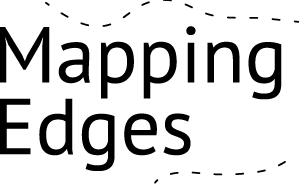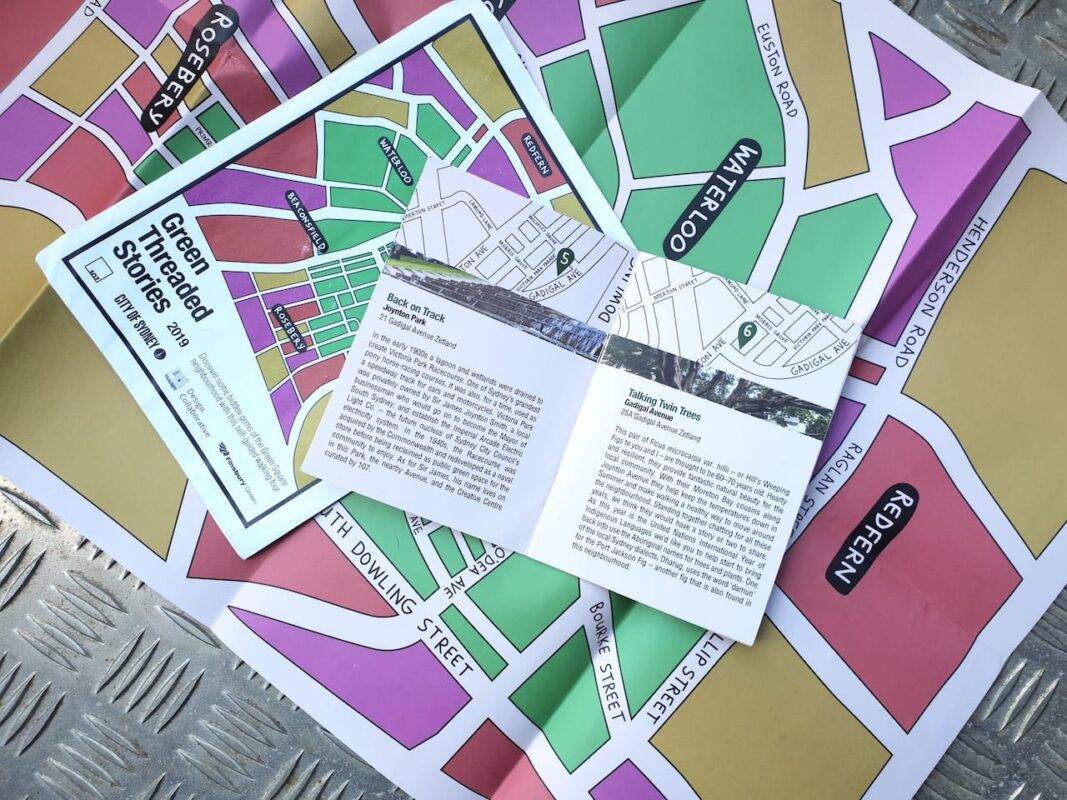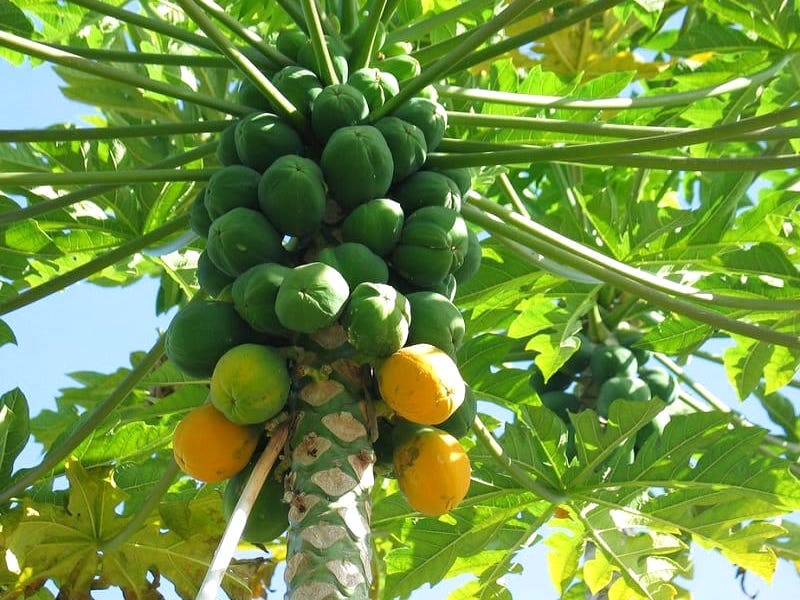
Mapping Edges is a transdisciplinary research studio that explores the relationships between ecologies, people and the urban environment.
Welcome to the Mapping Edges universe.
ABOUT:
Mapping Edges specialises in place-based design research. We explore and amplify urban ecologies, at a time when the impact of climate change on our cities calls for a better understanding of the relations between people, nature, culture, and urban space
The ‘edges’ in our name refer to the idea of edge or ecotone as a transition zone between different ecosystems. Elements from these ecosystems make edges rich in biodiversity.
As researchers, we work at the ‘edges’ of research disciplines – design research, ethnography and history – and methodologies to cross-pollinate new ideas. We experiment with edges as transition zones between different ecosystems; interfaces between mediums, projects and processes on the margin of activities where it is possible to cross-pollinate and develop alternatives.
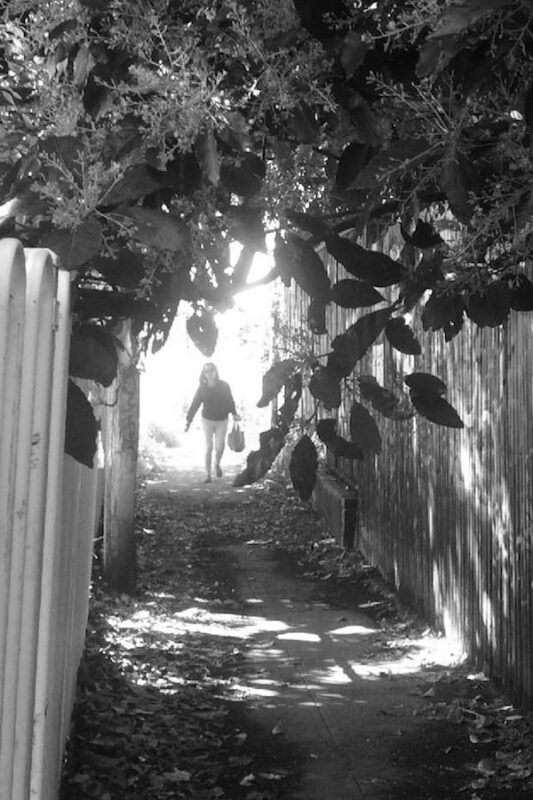
OUR TERMINOLOGY:
What are recombinant ecologies?
Recombinant ecologies are ecologies that only exist because of human intervention, either deliberate or inadvertent. In Sydney, for example, recombinant ecologies include the banana, papaya, and dragonfruit plants that populate suburban gardens and verges.
What are civic ecologies?
Civic ecologies are the result of deliberate, actions that make connections between people in a particular place. Community gardens, verges tended by residents, and seed exchanges are examples of civic ecologies. Civic Ecologies can make alliances between country, communities, individuals, organizations, local govt, plants, animals, soil, and water.
Our Projects
The Green Square Atlas of Civic Ecology (2021)
The Green Square Atlas of Civic Ecology aims to produce a map of the civic environmental practices happening within Sydney’s Green Square precinct.
Mapping Marickville (2018)
Marrickville Walks produced a series of print-on-demand booklets about the edible gardens of Marrickville. We explored this environmentally and culturally diverse suburb on foot.
PUBLICATIONS
Moss as Metonym
A metonym is a figure of speech that transfers the meaning of a word to another based on a relation of proximity, either material, spatial or causal. For instance, ‘breaking a sweat’ meaning ‘to work hard’, ‘Canberra’ to signify the Australian government, or ‘he turned red’ to indicate the embarrassment that causes a white person […]
DOWNLOAD pdfVisually Communicating Artificial Urban Wetlands
Urban wetlands in Australia are under threat, yet they provide benefits for climate change mitigation, pollution reduction, habitat provision, and socioecological connection. In what is now known as Sydney’s inner south and inner west, wetlands were significant places maintained by Aboriginal peoples for millennia (Foster). The violent colonial history that shaped Sydney unfolded along its […]
DOWNLOAD pdfThe Green Square Atlas of Water Stories
The Green Square Atlas of Water Stories maps, materialises and activates social and environmental histories and practices of water in Green Square. We invite you to choose a portal through which you can enter the archives and flow through time and space. Be guided by a camellia, a pub sign and a dugong. Take a […]
DOWNLOAD pdfFrom photo documentation to photo diagrams: a technique to make civic ecologies present and legible
The visualization of nature in cities fundamentally impacts how we imagine the urban environment and our role in caring for it. Across Australia, the project of urban renewal imagines and designs specific typologies of urban nature. These typologies can obscure grass root forms of environmental stewardship and their connection through civic ecologies. Yet, at this […]
DOWNLOAD pdfOn Countermapping and codesigning with more-than-humans
This chapter is published in Feminist Designer, On the Personal and the Political in Design Edited by Alison Place, The MIT Press Book Details
DOWNLOAD pdfEdge
Published in Environmental Humanities, 2023, 15, (1), pp. 164-167, Duke University Press As a concept, edge has multiple intellectual genealogies, from ecology to business studies and cultural theory.1 In each field it has slightly different connotations, but it maintains a basic shared meaning: it signifies a transition zone between different systems. In this lexicon entry, we explore […]
DOWNLOAD pdfLATESTS POSTS
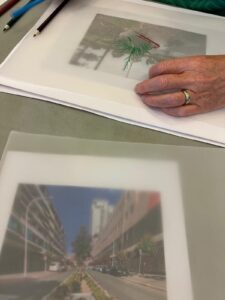
Climate Action Week Workshop
When is a tree not just a tree? and a drain not just a drain? When it’s a rain garden! Thanks to everyone who joined our Climate Action Week workshop on visualising urban ecologies. Climate Action comes in many different forms- the way we visualise nature in cities shapes how we see our role in […]
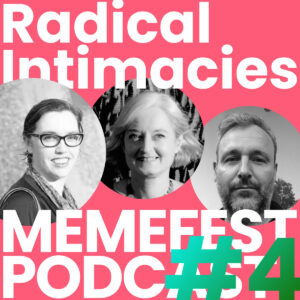
Memefest: Radical Design Podcast
Thank you for having us in conversation Oliver Vodeb: Seed Balls as a Relational Design Method In this episode, Alexandra Crosby, Ilaria Vanni, and Oliver Vodeb explore ideas around expanded permaculture design and relational design ecology objects. Their conversation is grounded in DIY design tactics that seek to connect us to the plant world — […]
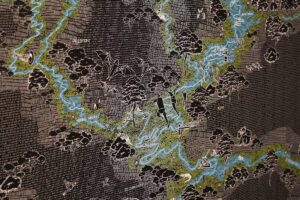
Bringing the river into the gallery and the future: reimagining Birrarung 50 years from now
Postcards from the future: the river-cleaning Birrabot. REALMstudios/NGV Australia Alexandra Crosby, University of Technology Sydney The Ian Potter Centre at Melbourne’s Federation Square is located on the banks of the lower stretches of Birrarung, the Yarra River. For Reimagining Birrarung Design Concepts for 2070, on until 2 February 2025, the river flows into the gallery […]
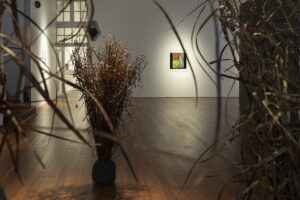
Ecological art can bring us closer to understanding nature. How does this look in the era of climate change? Topographies at Sydney College of the Arts Gallery. Jessica Maurer Alexandra Crosby, University of Technology Sydney Ecology has always fascinated Australian artists. Think of landscape painters like Arthur Boyd (1920–99), who was inspired by nature and committed […]
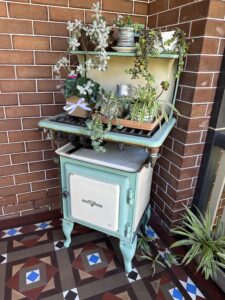
Haberfield Garden Competition 2024
Since our 2018 project documenting environmental stewardship practices in the gardeners of Haberfield, we have volunteered as judges of the Haberfield Association’s Garden Competition. This year we were looking at the category ‘Whole Gardens’. Presentation night was 22nd Monday, 2024 at the local library. Judges showcased the stunning entries to share the resilience, generosity and […]
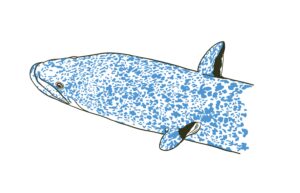
PhD Scholarships available
PhD scholarships available with Mapping Edges as part of the ARC Discovery Project ‘Surfacing urban wetlands in two urban renewal sites in Sydney’ Fully funded for 3.5 years full time Email CV and cover letter to Alexandra.crosby@uts.edu.au by 8 April 2024. Successful applicants will join the research team sharing knowledge between partners, with milestones for […]
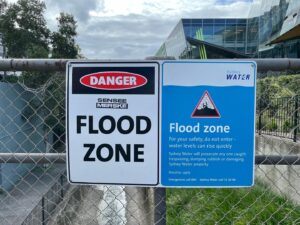
Following Sydney’s water: visualising socio-ecological relationships
We are absolutely thrilled to be starting on a new project in 2024. This Discovery Project is funded by the Australian Research Council. Wetlands are an endangered ecosystem globally. We aim to foreground, explore and reconnect with wetlands in Sydney. The project builds on research undertaken in Water Stories, using a similar methodology (including walkshops, […]
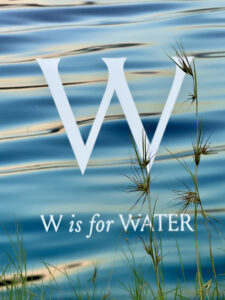
Pedal Set Go
Mapping Edges has collaborated with Pedal Set Go on a free Guided Ride of Water Stories. The tour is based on the living archive of Green Square. Professional guides show riders the bicycle friendly ways to explore Water Stories that maps the history and practices of water around Green Square. ‘Not only will you never […]
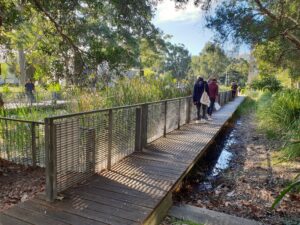
Mapping Edges at Livable Cities Conference
In June, we travelled to New York to present at the Livable Cities Conference, covering architecture, design, city planning, health, technology, urban economics and social policy. We presented our paper ‘Civic Ecologies in Green Square: Beyond urban renewal, towards caring for Country’ on a panel about Sustainability and Society.
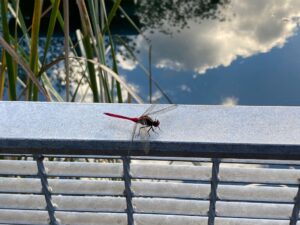
Bell frogs, dugong bones and giant cauliflowers: water stories come to life at Green Square
Sheas Creek runs into Alexandra Canal. Photo: Ilaria Vanni, Author provided Ilaria Vanni, University of Technology Sydney; Alexandra Crosby, University of Technology Sydney, and Shannon Foster, University of Technology Sydney Did you know the Sydney suburb Rosebery was home to the now-endangered green and golden bell frogs? That enormous cauliflowers were nourished by fresh water […]
